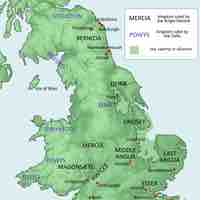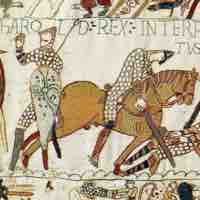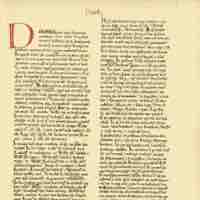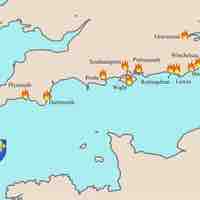Section 5
The Development of England
By Boundless

The Anglo-Saxons were a people who inhabited Great Britain from 450 to 1066; their reign saw the creation of a unified English nation, culture, and identity, setting the foundation for modern England.

The Norman Invasion of England was led by William II of Normandy, who defeated Harold II of England in the Battle of Hastings in 1066.

William the Conqueror's rule was marked by struggles to consolidate his hold over England, which led to the compiling of the Domesday Book, a manuscript surveying the land of England in order to understand the holdings of each household.
The Magna Carta was the first document imposed upon a king of England to limit his powers by law and protect civil rights.

The Hundred Years' War was a series of conflicts between the kingdoms of England and France for control of the French throne.